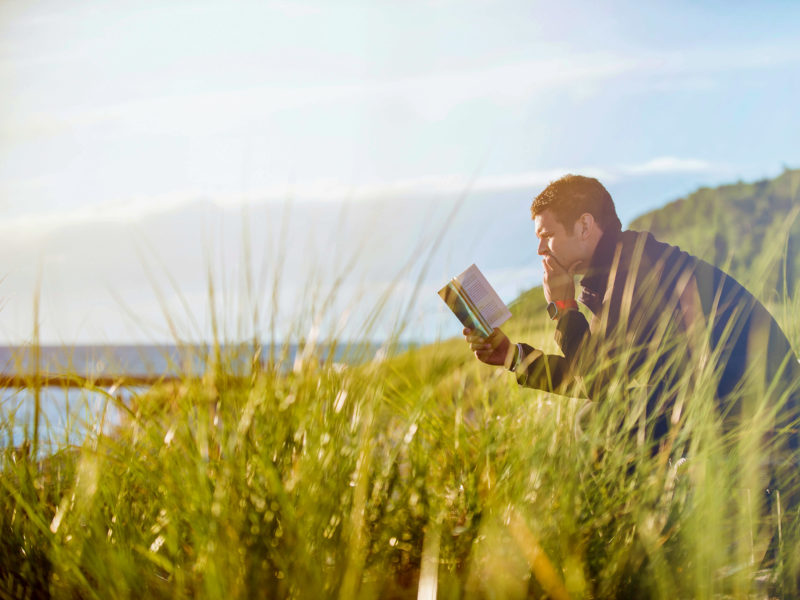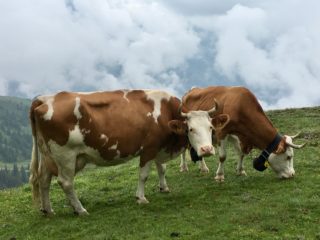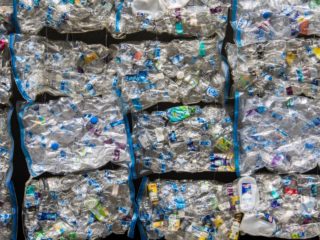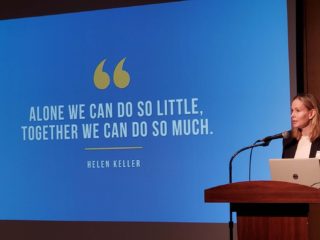As Climate Week comes to an end, what better time than to pick up a book about climate change? From Climate 101 books to climate fiction, these Best Books on Climate Change have you covered!
Table of Contents
- A Climate Classic
- Climate Change and Our Consumer Culture
- A Climate Primer
- Climate Action: What Can You Do?
- Making Climate Connections: Food
- Making Climate Connections: Energy
- Profiting From Climate Change
- Climate Communication
- A Visual Understanding of Our Climate Crisis (Part 1)
- The Best Books on Climate Change: Climate Fiction
A Climate Classic
An Inconvenient Truth: The Crisis of Global Warming, by Al Gore

Michiko Kakutani’s review in The New York Times lauds the book as “a user-friendly introduction to global warming” that is “lucid, harrowing and bluntly effective,” and writes that Gore “enumerates practical steps that can be taken to reduce carbon emissions to a point below 1970’s levels.”
While An Inconvenient Truth is a helpful accompaniment to its famous film counterpart it is able to stand alone as an essential manual for understanding the severity of climate change. After reading this climate classic, take a look at Gore’s guide to climate action, An Inconvenient Sequel: Truth to Power.
Climate Change and Our Consumer Culture
The Story of More: How We Got to Climate Change and Where to Go from Here, by Hope Jahren

Jahren’s goal is “to present climate change as a result of broader dysfunctions having to do with consumption habits that, she says, don’t even make us happy.” (The New York Times Book Review)
In contrast with a doom-and-gloom perspective, The Story of More appeals to human nature, asking us to think about how much we waste individually and as a society. As Jahren writes, “Our children grow up, our bodies wane, and death comes to claim some of those we love. All the while, we spend our days making things for the purpose of discarding them.”
A Climate Primer
How to Prepare for Climate Change: A Practical Guide to Surviving the Chaos, by David Pogue

Pogue, a CBS science and technology correspondent, has done his research and you’ll be well equipped to face all manner of climate-related events, from hurricanes and tornadoes to droughts and massive fires. Adding to his natural disaster-prep, Pogue has compiled suggestions for what to grow and eat, how to build resilient homes; even guidance on insurance, investing and where to consider relocating.
As Pogue puts it, “It’s a practical guide to adaptation steps that you can take, as one person – for your own benefit, your family’s, and your community’s. It’s about where to live, how to invest, what to eat, how to build, what insurance you need, how to talk to your kids.”
Climate Action: What Can You Do?
Facing the Climate Emergency: How to Transform Yourself with Climate Truth, by Margaret Klein Salamon

Salamon focuses on facing and accepting fears we have about climate change and channeling those fears into more positive and helpful responses. In addition, she keeps her reader informed about the current impacts on the climate.
Facing the Climate Emergency “will wake you up, no matter how aware you think you are. Better still: it tells you what to do once you are awake.” (David Wallace-Wells, author of The Uninhabitable Earth).
Making Climate Connections: Food
Kiss the Ground: How the Food You Eat Can Reverse Climate Change, Heal Your Body & Ultimately Save Our World, by Josh Tickell and Terry Tamminen

Tickell, a renowned documentary filmmaker, employs his filmmaking talents to produce a “richly visual” (Kirkus Reviews) account of the impacts of our food choices on climate change. Through interviews with chefs, ranchers, farmers, and top scientists, Tickell lays the groundwork for transforming our relationship with food and provides a roadmap for achieving that transformation.
“Kiss the Ground paints a hopeful yet achievable picture of a way of growing food that makes our soil healthier, makes us healthier, and ultimately could make our climate healthier too.” (Kimbal Musk, co-founder of the Kitchn) This is a must-add to the library of your best books on climate change!
Making Climate Connections: Energy
The Grid: The Fraying Wires Between Americans and Our Energy Future, by Gretchen Bakke

Bakke also presents the inherent challenges we face in transforming our electrical system from one tethered to fossil fuels into a more climate-friendly, nimble network. A “lucid and thought-provoking book” (Wall Street Journal), The Grid is a must-read for understanding one of the most fundamental drivers of climate change.
For a scathing investigation of the fossil fuel industry’s role in throwing up roadblocks to climate action, The New Climate War: The Fight to Take Back Our Planet, by Michael Mann. It’s worthy of being added to this list of Best Books on Climate Change but has already been reviewed in Green That Life’s Summer Reading Guide.
Profiting From Climate Change
Windfall: The Booming Business of Global Warming, by McKenzie Funk

Traveling the globe to understand these entrepreneurial ventures, Funk groups businesses into three areas: melt, drought, and deluge. His reporting covers entrepreneurs who offer private firefighting services, fence building services to keep out climate refugees, and those who scramble to monopolize the market on water rights as a way to speculate on drought-ridden parts of the world.
A dispassionate report of this growing market that aims to cash in on catastrophe, Funk leaves it to the reader to draw conclusions, but this immensely readable book “is as entertaining as it is disturbing.” (The New Yorker, Best Books of the Year)
Climate Communication
Don’t Even Think About It: Why Our Brains Are Wired to Ignore Climate Change, by George Marshall

In addition to his own in-depth research, Marshall, a founder of the Climate Outreach organization, interviews climate activists, psychologists, scientists and climate deniers to arrive at his central premise–that inaction is a function more of psychological barriers than denial or ignorance of the science.
An engaging read, Don’t Even Think About It is an essential book for all in understanding and recognizing our inherent biases. Bill Nye sums it up: “Please read this book, and think about it.”
A Visual Understanding of Our Climate Crisis (Part 1)
Images from a Warming Planet, by Ashley Cooper

A photographer by profession, Cooper understands his subject matter. With an academic background in physical geography, Cooper spent 13 years traveling across every continent to compile over 500 photos that document the ravages of climate change.
Cooper’s efforts have paid off: His compelling images inevitably provoke an emotional reaction, translating the abstract and muddled world of climate science into meaning for all. One can’t help but be moved by Cooper’s account of the devastating impacts of global warming in images that are simultaneously stunning and heartbreaking.
With a foreword by environmentalist Jonathon Porritt, Images from a Warming Planet provides a clear and powerful depiction of the irrefutable connection between humans and our climate crisis–one that should spark action in anyone reading it.
The Best Books on Climate Change: Climate Fiction
The Wall, by John Lanchester

Alec Nevala-Lee at The New York Times writes that “Lanchester constructs a more elegant wall in prose than any politician could in concrete,” reminding us of both the current political and climate importance that this novel carries.









